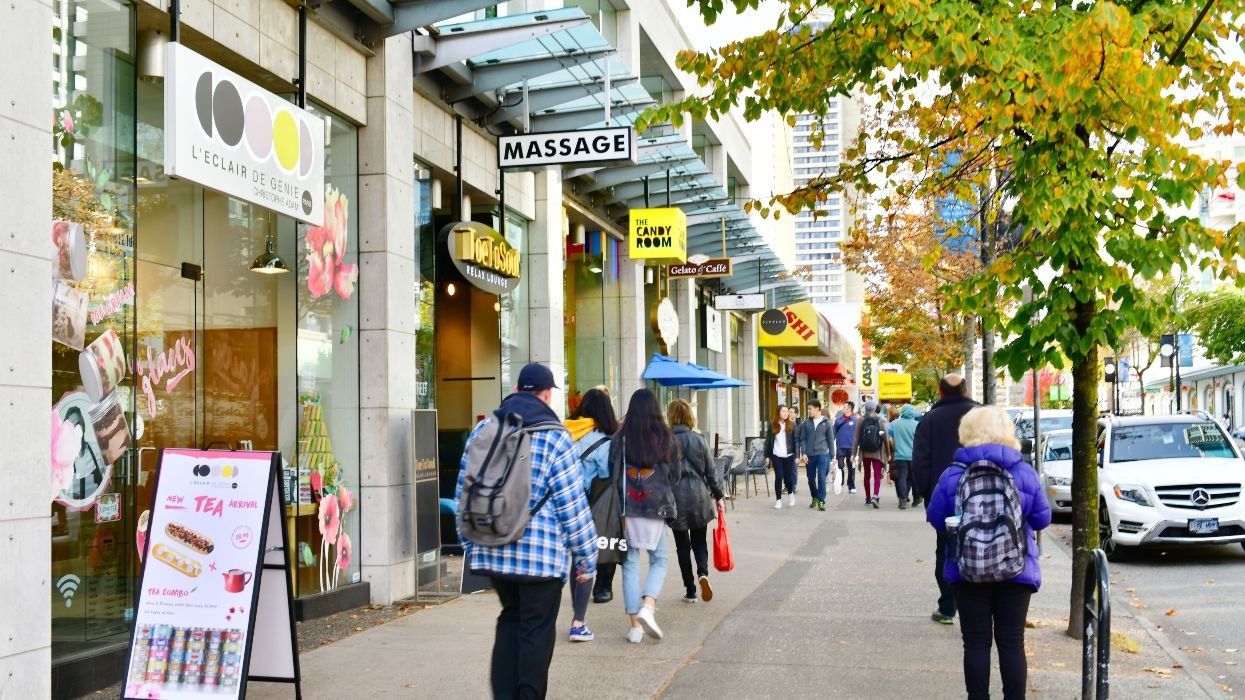Under British Columbia's Residential Tenancy Act, landlords are limited in the increase in rent they can demand each year, with the limit for 2024 set at 3.5%. New Westminster City Councillor Tasha Henderson wants to see a policy like this, commonly referred to as "rent control," introduced for tenants in commercial buildings as well, whether it be local businesses and what Henderson referred to as "community-serving organizations."
Her motion proposing such a change was passed 4-2 and will now be forwarded to the 2024 Lower Mainland Local Government Association (LMLGA) Conference and Annual General Meeting in May. It asks the Province to provide local governments with the "legislative authority to enable special economic zones where commercial rent control and demo/renoviction policies could be applied to ensure predictability in commercial lease costs, so local small businesses and community-serving commercial tenants can continue to serve their communities."
"What I'm hearing from the community is that the current structure of commercial leases doesn't work," Henderson said during the council meeting on February 26. "As it is, it's really unpredictable from lease to lease. It's not sustainable given rising land values and speculation. As land values increase, thus does the equity that commercial landowners have access to and the expenses proportionately increases for those landowners. Currently, those costs are being downloaded to small businesses to cover, even though those businesses and community-serving organizations don't have access to the gain in equity that property owners enjoy."
As examples, Henderson pointed to The Thirsty Duck Pub on on 12th Street, which Henderson says is seeing their rent "nearly triple" in their lease renewal, from $12 to $30 per sq. ft, as well as the Vancouver Circus School located within New West's River Market, which she says is set to face a rent increase from $17 to $39 per sq. ft.
Additionally, Henderson pointed to a recent list of recommendations published by Restaurants Canada and the BC Restaurant & Foodservices Association that identified rent control as something that would help the industry.
The recommendations were published as part of the organizations' "Save BC Restaurants" campaign and was, fittingly, published in the form of a restaurant menu, which listed "commercial landlord rent increases" under the "Unappetizers" section of the menu. Explaining the item further, the organizations say that "unrestricted rent increases from landlords risk pricing restaurants out of long-established locations."
Another "unappetizer" listed is "ever-increasing property taxes," which notes that "As commercial properties pass taxes on to tenants, establishments have to eat the cost of property tax increases."
In the past year, the hospitality industry in the Lower Mainland has seen two notable restaurant groups — Donnelly Group and Joseph Richard Group — file for creditor protection after facing financial difficulties that primarily arose as a result of the COVID-19 pandemic — not to mention the many smaller businesses that have undoubtedly been forced to close. In their respective filings to the court, both groups cited increased lease rates and increased property taxes, among many other things, as reasons for their financial struggles.
It's unclear whether commercial rent control would save struggling small businesses, whether there could be any unintended consequences like councillors who opposed the motion wondered, whether it could apply to office tenants as well, and what commercial rent control would really look like, but Henderson emphasized that she is not asking for commercial rent control to be introduced overnight.
"I'm sure there will be questions about what this would look like. I don't have those answers tonight. What I'm asking here is for us to ask the Province for the ability to explore what tools we have [and] what neighbourhood-level solutions that we can find to support some more security and sustainability for commercial tenants and their leases. Certainly these ad-hoc unpredictable increases are not providing safeguards for the commercial rents and we already do this successfully for residential rents across the province, so it seems like we could find a way to do it for commercial tenants as well."





















